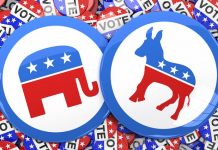Comparing one’s situation, and all of its facets, past to present, is as natural as breathing. Whether it is your finances, job circumstances, love life, leisure experiences, or whatever, we are always evaluating our ‘scene’. Was the last purchase worth it? Is my job better than before or worse? Am I in better or worse condition financially than I was a few years ago? Am I healthier now, or are time and gravity defeating me, one increment at a time? I bring the whole comparison thing up as a way to evaluate the results of our current political environment. Let’s dig.
First, a few terms need definition. ‘Discrimination’ in and of itself is not the current ‘jump to conclusion’ word that modern times have assigned it. ‘Discrimination’, without adding the adjective ‘racial’, is just preferring one item or circumstance over another. It is to ‘discern’. And it is as individual as folk’s tastes and budgets will allow. Many people would prefer luxury cars over less pricey autos, but their finances simply remove many options from consideration. In economic terms, they simply are ‘not in that market’ for the expensive wheels (or any other luxury, high-priced items). Note that some will assign a priority to luxury items much higher than others. When I lived in Detroit, it was not uncommon to see someone living in a battered, cheap house or apartment, but driving the latest Cadillac. And that decision is not ‘right’ or ‘wrong’—it is purely up to the consumer’s tastes and priorities. That they may not match your tastes and priorities is completely irrelevant—unless you are paying their bills.
‘Better’ and ‘worse’ are just sliding scale opinions of one item or condition or another. Quantitative analysis, one number compared to another, is MUCH easier to assign—most people can agree that 6 of something is more than 4 of the same exact thing. Qualitative analysis is mostly opinion, not normally as easy to discern. Comparing jobs is a great example. Maybe the current job pays better than the last one (quantitative), but the working conditions are much more stressful and difficult (qualitative). Is the increased stress worth the pay difference? Two different people may arrive at different answers. Very rarely are two such conditions exactly the same (equal). One is usually ‘better’, one ‘worse’. Note that the evaluation may change, depending upon the specific trait under consideration.
Now we get to the hard part: comparing situations on a large scale. These are almost always multiple factor comparisons, which may impact the opinions of the results, depending upon which factors one puts more emphasis upon. For example, in today’s tight labor market, where there are so many unfilled job openings (especially in the lower wage industries), many folks are seeing an increase in pay. That would be a good thing for the employee, if it was the only factor involved. But the rise in inflation, especially in food and energy costs, may outpace that increase in pay. So, you get paid 5% more than last year, but inflation is at 8%, so you are actually worse off than before! Making $9/hour vs $7.50/hour sounds great, but if the average apartment rental costs $1,000 more per month, you’ve lost ground, not gained.
Further complicating the issue is Modern Liberal thought, where such comparisons are frowned upon entirely. See Evan Sayet’s book, ‘The Kindergarden of Eden: How the Modern Liberal Thinks’. He writes that Liberals think discrimination of any kind is so bad, we’re now being taught that no one thing is better than any other! While that may be a valid statement when comparing hair color, race, or height, it falls short of validity when comparing vastly different items of the same category. Are all civilizations equal? That argument dies a quick death if one considers medical advances, engineering advances, and standards of living increases. While it may lead to some civilizations disliking the comparisons, the results are quite evident. Again, note that each facet might be evaluated separately, returning mixed results. Maybe the Roman Empire scored higher on overall citizen standard of living, but much less on the freedom scale (I’m making up these evaluations), than current day USA. The importance you assign to the characteristics evaluated will likely influence your final opinion.
Which brings me to the main point of this writing. Are we politically better off or worse than, say, three years ago? (I try to skip 2020, as the COVID-19 pandemic makes year-to-year comparisons impossible). In economic terms, it is an easy win for the recent past. Current inflation is overwhelming any pay increases—an inflation rate not seen in about a decade. In addition, many bills before Congress are proposing drastic changes in our income tax dynamic, everything from increasing the corporate tax rates, to increasing personal marginal tax rates, to a per-mile tax on vehicles, even to taxing unrealized gains in investments! Some bills want to nationalize the election process, even though it is specifically the States’ domain in the US Constitution. There is even a proposal that all banking transactions over $600 be reported to the IRS! I have no idea how such a requirement doesn’t violate the 4th and 5th Amendments, but the idea is still out there. The COVID pandemic has responses in some bills that threaten to fine businesses $700,000 PER UNVACCINATED EMPLOYEE! President Joe Biden has also floated the idea that businesses with over 100 employees must MANDATE COVID VACCINATIONS! Again, the Constitutionality of such measures I’ll leave to the experts. But the comparison to three years ago, when considering financial and personal freedoms, is no comparison at all.
Thank you for taking the time to read my article! Feel free to add comments (good or bad) in the box below. In addition, there is a link at the bottom of the article to view other items I’ve written at Global Liberty Media. Enjoy!

























Good read
Thanks!
Excellent article. Thanks